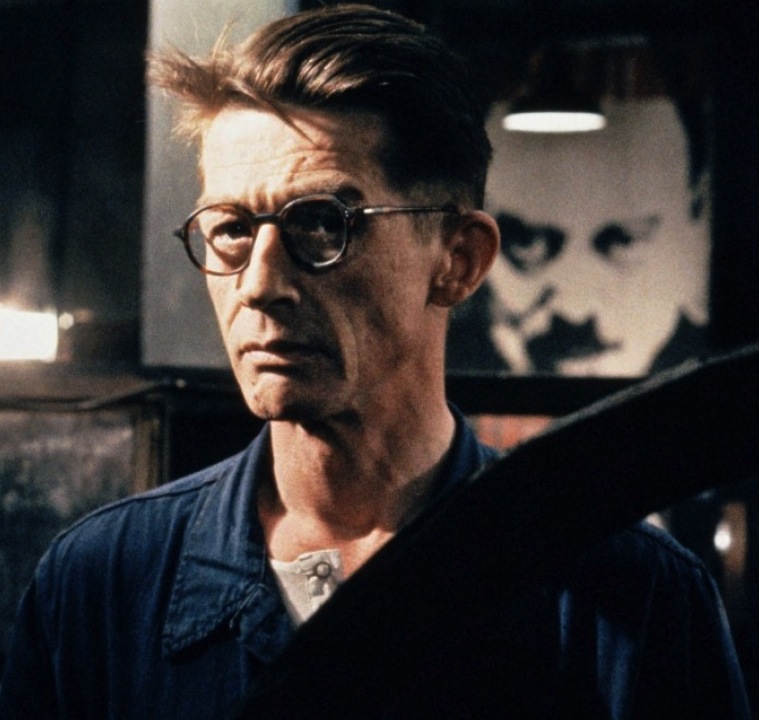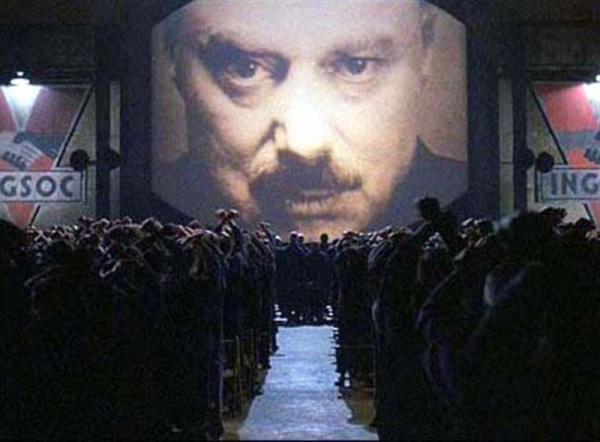 Grab your bows and prepare to make mince meat out of the other tributes…The Hunger Games are upon us.
Grab your bows and prepare to make mince meat out of the other tributes…The Hunger Games are upon us.
This week, arguably the first anticipated film of 2012 finally finds its way to theaters. Based on the young adult book series by Suzanne Collins, The Hunger Games presents a distant future in which an uprising of the poorer classes was quelled and, as punishment, each of these districts must offer up two children each year to fight to the death in a widely-televised, macabre sporting event.
This movie details a dystopian future, an oppressive, state-run nightmare masquerading as a utopia, and that got us thinking about the ultimate dystopian story: 1984. If you haven’t seen the film adaptation of this classic novel (which was, unironically, produced in 1984), Netflix’s Watch Instantly service has you covered. We hope you’ll consider making it a companion film for The Hunger Games.
Who Made It: 1984, the novel, was written by George Orwell. Orwell was a deeply socially-conscience thinker harboring a fierce opposition to totalitarian and otherwise oppressive political regimes. This film version was directed and written for the screen by Michael Radford. One of his first feature films, 1984 would be followed with his highly acclaimed Il Postino in 1994.
Who’s In It: 1984 stars John Hurt in the lead role. Hurt, who most recently appeared in Tinker Tailor Solider Spy, is one of the greatest living actors of our time. You may also have seen him in V for Vendetta, Immortals or as the wand maker Ollivander in the Harry Potter franchise. The film also marks the last on-screen appearance of acting royalty Richard Burton.
What’s It About: 1984 takes place in an alternate future, well what would have been an alternate future when the book was written though now a year long since past. In this supposed era, a form of socialism has taken over England, which is in a state of perpetual war and overwhelming poverty. The new government keeps a firm hold over its people through surveillance and fear. Our protagonist is Winston Smith, whose occupation sees him altering historical documents to create whichever past is most convenient for the government at that time. He is however risking his life to keep a diary of his thoughts, a rebel who dares to feel.
Why You Should Watch It:
1984, both as a novel and as a film, occupies the top tier of dystopian science-fiction. Like most works within this strange subgenre, it supposes a world where order and social “harmony” is achieved at the expense of individual thought and freedom. A society in which the people are lulled into conformity by a system of lies and propaganda. Individual expression is forbidden and regulated by a group called The Thought Police. I mean, heck, this is the story that coined the term, “big brother.”
These films, these stories, are always fascinating to contemplate within the context of our actual society. We may not be living under a tyranny this exaggerated, but there are themes touched upon in the film that are echoed in our current political climate.  The influence and government and its right to intrude upon our privacy, the regulation of sexual morays, and the supplication of the poorer classes are all ideas that, in some form or another, still resonate and foster much debate. What’s great about these dystopian tales is that the presence of the lone, rebel hero who has the audacity to be a normal, free-thinking human being, always inspires hope in even the most somber, pessimistic portrayal of our future.
The influence and government and its right to intrude upon our privacy, the regulation of sexual morays, and the supplication of the poorer classes are all ideas that, in some form or another, still resonate and foster much debate. What’s great about these dystopian tales is that the presence of the lone, rebel hero who has the audacity to be a normal, free-thinking human being, always inspires hope in even the most somber, pessimistic portrayal of our future.
On top of its metaphoric and thematic trappings, 1984 is a supremely well-made piece of cinema. John Hurt’s performance is reserved, but powerfully complex. The film was shot by Roger Deakins, who is one of the most celebrated cinematographers in the industry. The guy has shot pretty much every Coen Brothers movie—if that’s any indication. He does a great job of creating this harsh, cold, industrial hellscape to which these supposedly free citizens are shackled. It’s a movie that looks as desolate and grim as its themes elicit affectively from the audience. Interesting side note, it was jrecently announced that we’ll be getting an updated version of the film co-produced by Ron Howard and renegade street artist Shepard Fairey.


